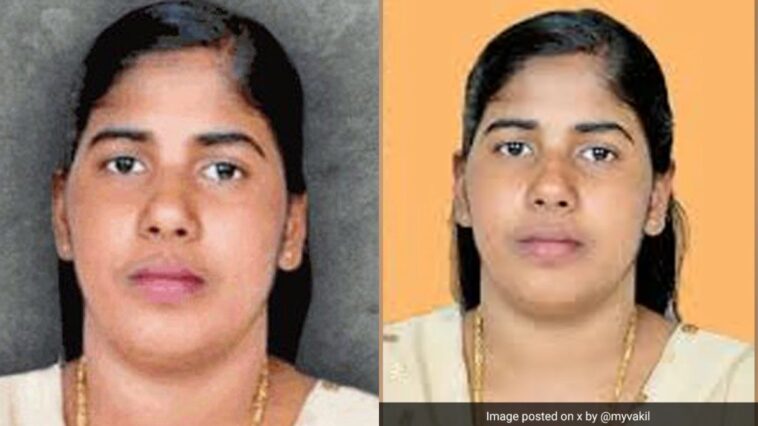Nimisha Priya, an Indian nurse from Kerala, has been on death row in Yemen since 2018 following her conviction for the murder of Yemeni national Talal Abdo Mahdi. Her case has garnered significant attention due to the complex circumstances leading to the crime and the international efforts to secure her release.
Early Life and Move to Yemen
Born in Kollengode, Palakkad, Kerala, Nimisha Priya pursued nursing with the support of her local church. In 2008, she moved to Yemen to work as a nurse in a government hospital in Sana’a, the capital city. In 2011, she returned to India to marry Tomy Thomas, in a match arranged by her family. The couple then returned to Yemen, where Thomas found work as an electrician’s assistant. Their daughter was born in December 2012. However, financial difficulties led Thomas and their young daughter to return to India in 2014, while Priya remained in Yemen to continue working.
Establishing the Clinic and Partnership with Mahdi
In 2014, Priya decided to open her own clinic to improve her financial situation. Yemeni law required foreign nationals to have a local partner to establish a business, leading Priya to collaborate with Talal Abdo Mahdi, a local businessman who owned a textile shop. Together, they established the Al Aman Medical Clinic, a 14-bed facility, financed through loans amounting to approximately ₹5 million.
Allegations of Abuse and Forgery
According to Priya, Mahdi’s behavior became increasingly abusive over time. She alleged that he confiscated her passport, restricted her communication with her family, and subjected her to physical and emotional abuse. Priya also claimed that Mahdi forged documents to falsely assert that he was her husband, further complicating her situation. Despite reporting his actions to local authorities in 2016, no action was taken to assist her.
The Crime and Arrest

In July 2017, in a desperate attempt to retrieve her passport and escape the abusive situation, Priya administered ketamine to Mahdi, intending to sedate him. Tragically, Mahdi died from an overdose. In a panic, Priya, with the assistance of another individual, dismembered Mahdi’s body and disposed of it in a water tank. She was arrested in August 2017 while attempting to flee Yemen.
Trial and Conviction
Priya’s trial in 2018 was conducted entirely in Arabic, a language she does not speak, and she was reportedly not provided with an interpreter or legal representation. She was convicted of murder and sentenced to death. Her accomplice received a life sentence. Despite appeals and calls for a retrial citing the lack of fair trial standards, the Yemeni Supreme Court upheld her death sentence in 2023.
International Efforts and Family’s Plea
Priya’s family, along with advocacy groups like the Save Nimisha Priya International Action Council, have been actively working to secure her release. They have sought to negotiate with Mahdi’s family for a pardon in exchange for “blood money,” a provision under Islamic law that allows the victim’s family to forgive the offender, potentially annulling the death penalty. By June 2024, approximately $40,000 had been raised for this purpose, with half transferred to the Indian Embassy in Sana’a.
Recent Developments
In April 2024, Priya’s mother, husband, and daughter traveled to Yemen to meet her and negotiate with Mahdi’s family. This visit was significant, as Indian citizens require special permission to travel to Yemen due to safety concerns. Despite these efforts, in December 2024, Yemeni President Rashad al-Alimi approved Priya’s death sentence, with her execution scheduled to take place within a month. The Indian government has stated that it is extending all possible help in the matter.
Your Nimisha Priya Husband
Tomy Thomas, Nimisha Priya’s husband, has been a steadfast supporter throughout her ordeal. After returning to India in 2014 with their daughter due to financial difficulties and the escalating civil conflict in Yemen, Thomas has been actively involved in efforts to secure his wife’s release. He has participated in fundraising activities to gather the required “blood money” and has traveled to Yemen to negotiate with Mahdi’s family, despite the inherent risks involved. Thomas’s unwavering commitment underscores the family’s determination to bring Priya back home safely.
Conclusion
Nimisha Priya’s case highlights the complexities faced by individuals working abroad, especially in conflict zones, and raises questions about legal representation and fair trial standards in foreign judicial systems. As her execution date approaches, international attention remains focused on diplomatic efforts and negotiations that could potentially save her life.



